
Cut Through the Red Tape(worms)
Tapeworms are long, white, segmented worms that live in the small intestine of pets. These are some of the most common parasites found by owners as small segments (which contain the tapeworm eggs) are seen in the poop or around the base of the tail.
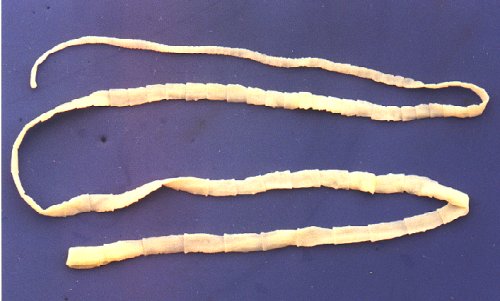
The Tapeworm Life Cycle
A flea carrying tapeworm embryos lands on the pet, and the pet ingests the flea while grooming. The tapeworm embryo develops into an adult tapeworm and migrates to the small intestine.
The tapeworms shed proglottids (the little segments that make up the worm) in their feces. These proglottids are then consumed by flea larvae to start the whole cycle over again.
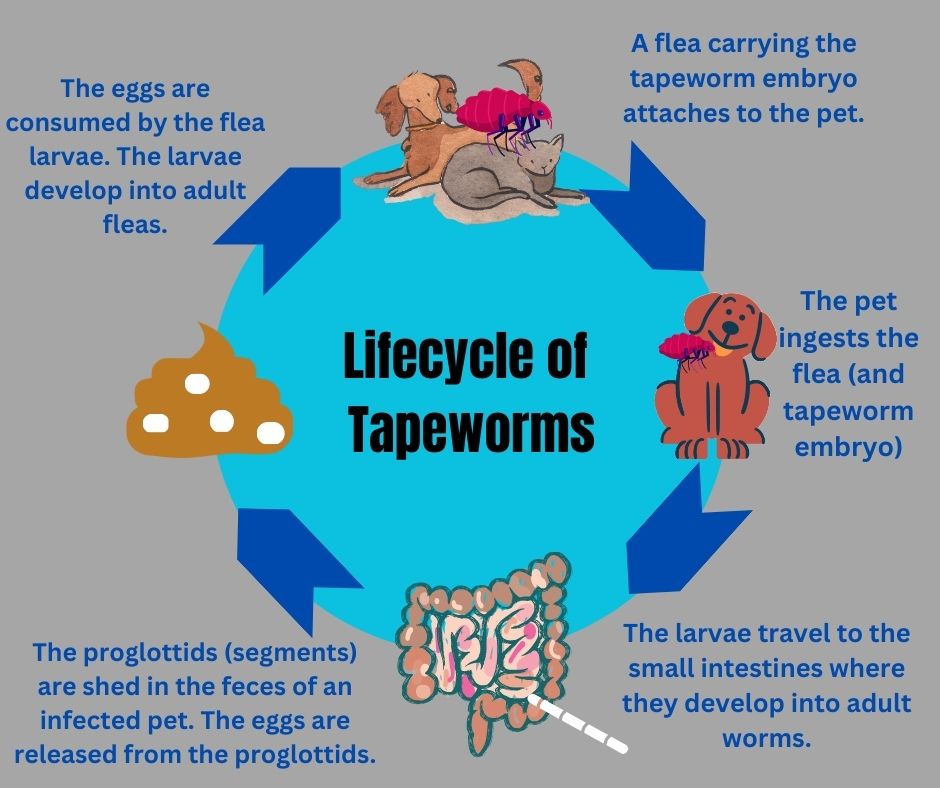
Treatment
There are several medications available to treat tapeworms, including some monthly preventatives like Interceptor Plus.
Prevention
Not only is it important to use a monthly intestinal parasite prevention, but since tapeworms are spread through fleas, it is important to use flea/tick prevention as well.
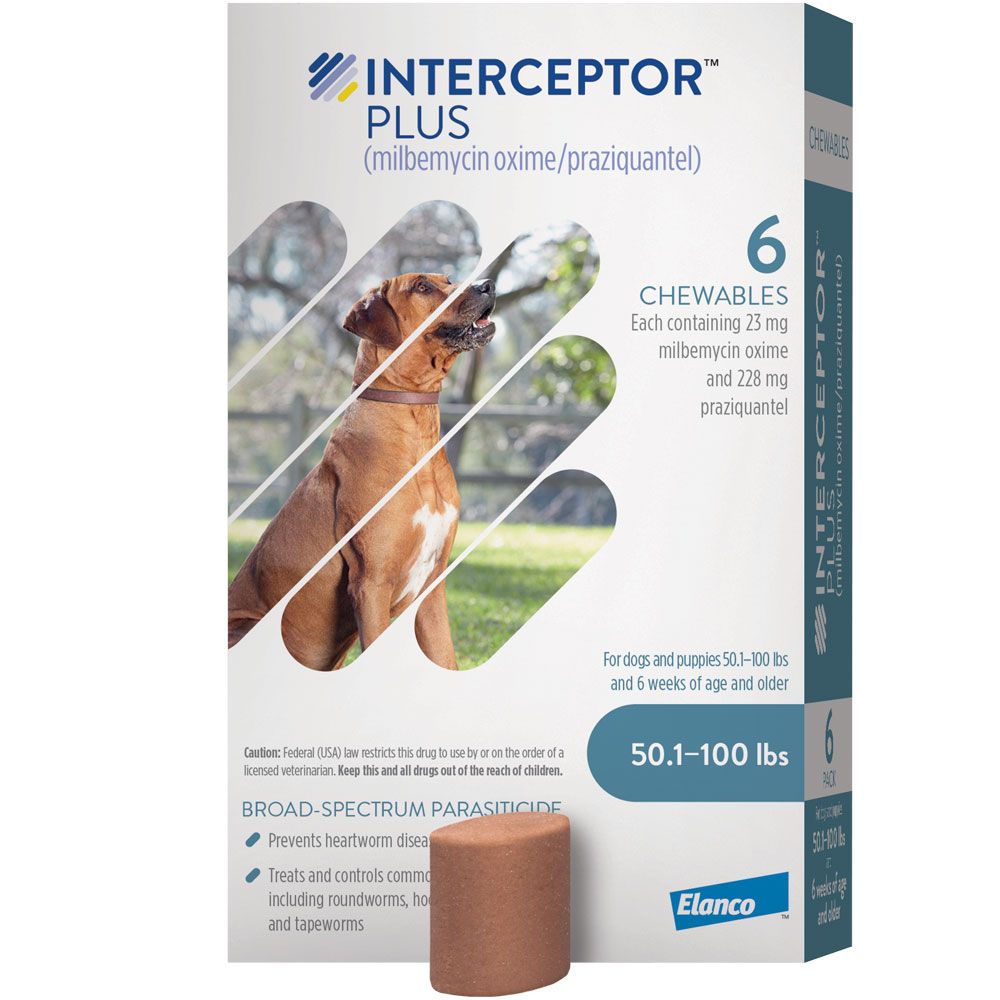
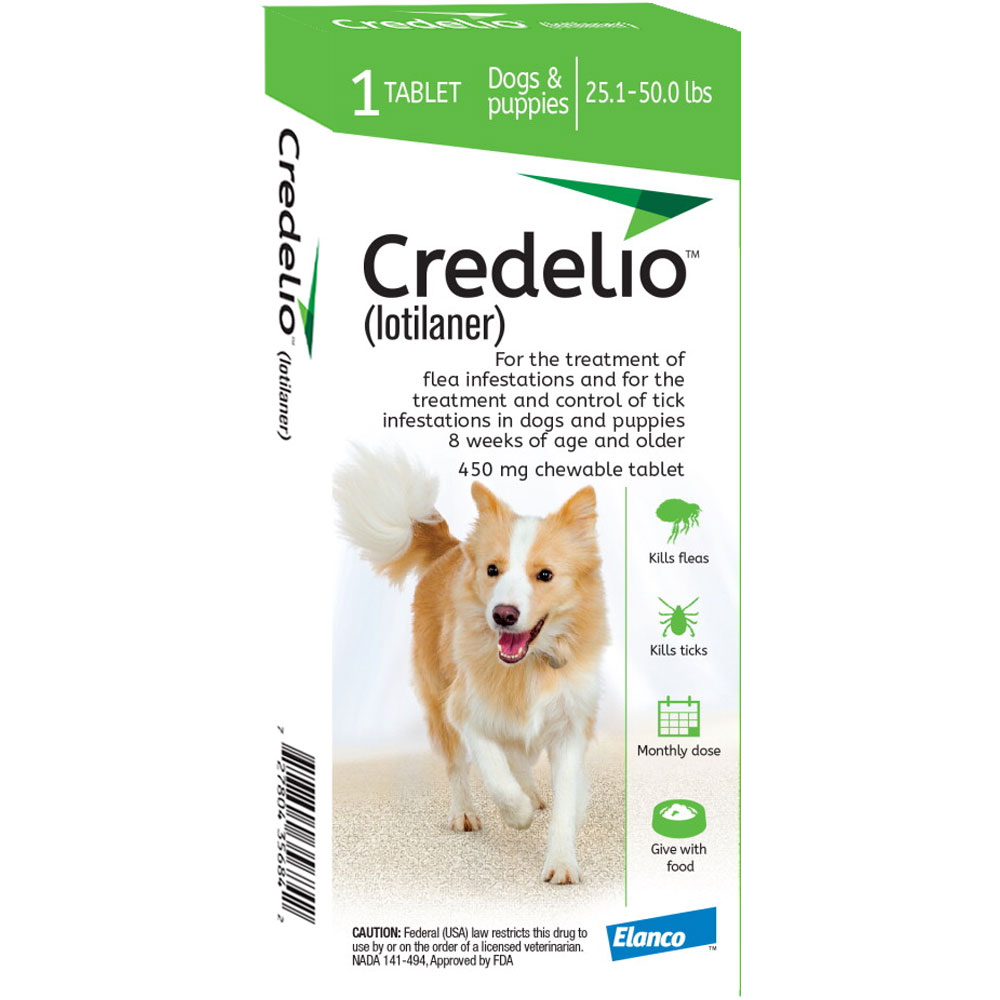
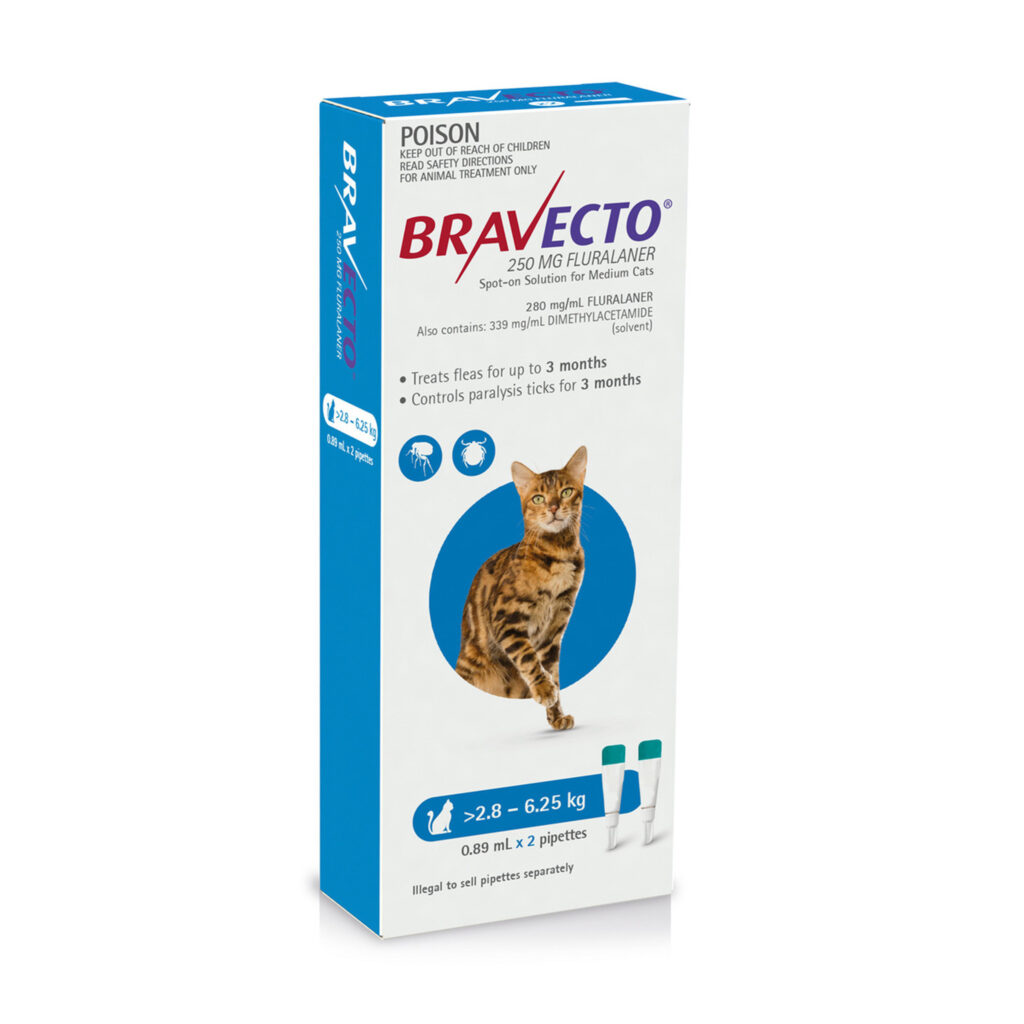
ZOONOTIC!
While transmission to humans is rare, accidental ingestion of infected fleas can happen. This is why prevention of tapeworms is important.
Tapeworm Testing
Testing for tapeworms can be difficult as the eggs do not consistently show up. However, oftentimes you can physically see the proglottids (segments) in the poop or around the base of the tail.
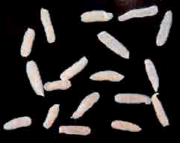

Highlights
- Fleas are the carriers for tapeworms. Cats and dogs are most often infected when they groom themselves and eat the fleas.
- The best way to prevent tapeworms is to use a good flea/tick prevention.
- While rare, tapeworms can be transmitted to humans.
Now It’s Your Turn!
Don’t forget to use the information in this post to fill out your Parasite Bingo card.
